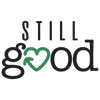Even if the snow and the cold weather keep falling on us, think again, spring has indeed arrived and it's time to plan your vegetable garden for the summer! Yes, it's time to start your seedlings and daydream about the tastes of good summer vegetables. When we start this adventure, we can quickly be dazed by the number of products available to us for gardening, encouraging us to overconsumption or use chemicals. In this article, I offer you ecological tips and discoveries for an organic, productive and healthy garden!
1. Recycle Your Household Items
The idea that you must buy everything new to start your seedlings is wrong. I personally find that it can become costly as a starting investment with no real benefit. I would suggest keeping containers throughout the year in anticipation of the gardening season. For example, plastic trays containing croissants, roast chicken or strawberries make excellent mini greenhouses to start with. Old yogurt cups or other small containers from the supermarket can also be used to plant seedlings; simply drill some holes for drainage and you’re set! I even suggest that you cut off plastic lids to create labels to identify your plants and maximize the value of your containers. I have also seen several techniques on blogs that use toilet paper rolls as a biodegradable seedling cups, why not?
2. Use Compost as Fertilizer
Compost is a natural fertilizer with lots of benefits that allows you to ditch conventional chemical fertilizers. It can be used as a soil amendment or as a fertilizer for your vegetable garden by being spread on the soil in the spring or when planting. In both cases, your crops will benefit from the various nutrients and micro-organisms necessary for their growth. It will also improve the quality of the soil by eliminating diseases and optimizing drainage and/or water retention. You can buy it in stores, or make it yourself. You can also consult your city’s website, which often has dates in the spring and fall for free distribution of compost to residents. Psst! Many cities even offer free seedlings and plants! For Montreal residents, click here.
3. Use Insect Frass
Insect frass is a natural fertilizer developed from the circular economy which revalorizes the waste resulting from insect cultivation. It is a kind of “manure (residual biomass) made up of insect droppings, but also carcasses, moults and uneaten food residues”. It can be mixed with soil when repotting or simply placed on the surface of your garden. It provides an ideal bacterial dominance for successful vegetable garden production, while not creating a phosphorus overload in the environment. A study by the Urban Agriculture Laboratory (AU/LAB) of the Université du Quebec à Montréal proved that “insect frass allows a total production twice as superior to a mixed fertilization treatment containing frass and at least three times superior compared to other treatments”. You can buy it from two Quebec companies that I love, which I listed below:
4. Adopt Biochar for a More Fertile Soil
I made a wonderful discovery recently while watching a report from “la Semaine Verte” and it convinced me to try it out in my garden this year. “Biochar is a soil amendment made from the pyrolysis of biomass. It is used in agriculture to increase the quality of soils, and therefore their productivity; it is also used in the fight against global warming as a solution for long-term sequestration of atmospheric carbon in soils.” It is also part of the circular economy (yay!) and produced from forest residues that would normally be unused. According to Suzanne Allaire, a biochar expert, it helps structure the soil and improves its water retention in times of drought. It’s especially useful for warmer countries with little rainfall or for a girl like me who often forgets to water her crops! By retaining nutrients and feeding the bacteria, the soil becomes much more fertile and alive. Thanks to its high carbon content, it stays in the soil much longer than compost and when I say much longer, I mean years, even centuries! That’s a lot! You can purchase biochar and its user guide here.
Happy gardening!
By Millie Jacques, Customer Service Coordinator at Still Good
Sources
BIOPTERRE, FRASS: Analyse et valorisation, [Online], 2022 [https://www.biopterre.com/wp-content/uploads/2022/04/Biomasse_FRASS-FICHE-2022_V2.pdf].
LABORATOIRE AGRICULTURE URBAINE, Le frass, un engrais prometteur pour les potagers, [Online], 2022 [http://www.au-lab.ca/2022/03/31/le-frass-un-engrais-prometteur-pour-la-production-agricole-en-contenants/].
WIKIPEDIA, Biochard, [On line], 2023 [https://fr.wikipedia.org/wiki/Biochar].

